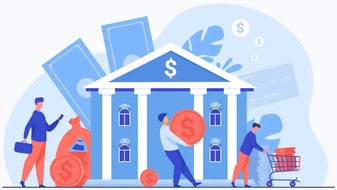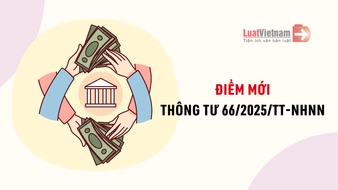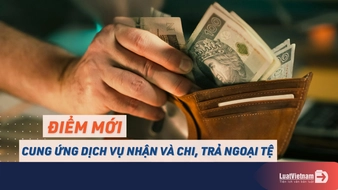In recent time, investment in Bitcoin is becoming more popular in Vietnam. Bitcoin attracts to investors because of its ability of making profit. What really is Bitcoin? What is regulation of Bitcoin according to the law of Vietnam and what is it specifically?
What is Bitcoin?
In general, Bitcoin is cryptocurrency.
Cryptocurrency is a digital currency which does not have management, issued by the software developer and also controls the system. Digital currency normally allows for payment between member of a specific cryptocurrency. (According to the definition of European Central Bank).
Therefore, bitcoin can be understanded as a type of currency only admitting and trading in the group of community or organization. These communities create bitcoin for the purpose of exchange, community trading and service.

Is a Bitcoin money as regulation of the law of Vietnam?
Pursuant to Article 105, 2015 Civil Code about asset:
- Assets are objects, notes, valuable paper and right to property.
- Assets include real estate and moveable assets. Real estate and moveable assets could be current assets and assets forming in future.
Pursuant to Article 16, 17 State Bank Law 2010 regulate about currency, bitcoin is not considered as a monetary unit of Vietnamese State.
Point a Paragraph 2 Article 6 Law of The Central Bank regulate about foreign currency, bitcoin is not considered as foreign currency and not foreign exchange object as bitcoin is not currency of any country in the world currently.
Bitcoin is not a monetary unit of Vietnam and also not foreign currency. However, the Law of Vietnam does not have a specific definition of “money” concept (what is money? What subject is money include?) pursuant Paragraph 1 Article 105 Civil Code 2015.
Bitcoin is still existing but not allowed to use
1. Transaction by Bitcoin
Pursuant Paragraph 1 Decree of No.80/2016/ND-CP, payment instrument which not using cash in payment transaction (hereinafter referred to payment instrument), include: cheque, payment orders, collection orders, bank cards and others payment instruments as prescribed by the State Bank.
Illegal payment instruments are payment instruments which do not include the objects above.
Also, at Directive 10/CT-TTg, The President requires organisations such as The State bank of Vietnam, the Minister of Finance, the Minister of Public Security… control, prevent and process performance of transaction (include issuing, transaction and agency) related to illegal cryptocurrency.
Therefore, bitcoin is not a payment instrument that allows to payment on the market. In other words, bitcoin is not allowed to be used as a replacement of cash or an instrument to replace cash as cheque, payment orders… in trading transactions.
2. Investment activity and bitcoin businessNowadays, bitcoin business is not prescribed in any document in Vietnamese Law system, in specific:
- Decision 27/2018/QD-TTg, bitcoin business is not listed in Vietnamese system and economy.
- Decision Article 6 The Law on Investment 2020, bitcoin is not listed on the Vietnamese industry system.
Nowadays, The Law of Vietnam does not officially allow bitcoin business but does not clearly prescribe of prohibiting bitcoin business. Hence, the condition of business and investment in this object is still happening.
Using bitcoin could be criminal handling
Pursuant Point d, Paragraph 6, Article 26 Decree of 88/2019/ND-CP about regulated violation in payment activity, using bitcoin can be penalty as following:
6. A fine range from 50.000 vnd to 100.000.000 vnd for one of the following violation activities
d) Issuing, supplying, using illegal payment methods which not touch to the point of criminal prosecution.
At the same time, Amended of Article 206 Criminal Law 2017 regulate crime of breaching regulation on banking activities, others activities relate to banking activity as following:
1. Any person who commits one of the following activities which cause damage to others person property from 100.000.000vnd to under 300.000.00vnd, will be fined from 50.000.000vnd up to 300.000.000vnd or prison sentences from 06 months to 03 years.
h) Issuing, supplying and using illegal payment instruments: faking payment vouchers, payment instruments, using payment vouchers, fake payment instruments.
Based on the regulation above, if participating in trading Bitcoin will be considered as illegal behaviour, depending on level could be handling administrative or criminal prosecution.
In conclusion, regulation of Bitcoin pursuant Vietnamese Law does not have much detail. Currently, The National Assembly is still in progression of building the legal framework for this object.
 RSS
RSS



![Nhiệm vụ, quyền hạn của Thanh tra Ngân hàng Nhà nước [theo Nghị định 05/2026/NĐ-CP]](https://image3.luatvietnam.vn/uploaded/340x190twebp/images/original/2026/01/19/nhiem-vu-quyen-han-cua-thanh-tra-ngan-hang-nha-nuoc-theo-nghi-dinh-05-2026-nd-cp_1901132240.jpeg)





![Thủ tục cấp bản sao từ sổ gốc từ 16/01/2025 [theo Quyết định 161/QĐ-BTP]](https://image3.luatvietnam.vn/uploaded/340x190twebp/images/original/2026/01/27/thu-tuc-cap-ban-sao-tu-so-goc-tu-16-01-2025-theo-quyet-dinh-161-qd-btp_2701101115.jpeg)